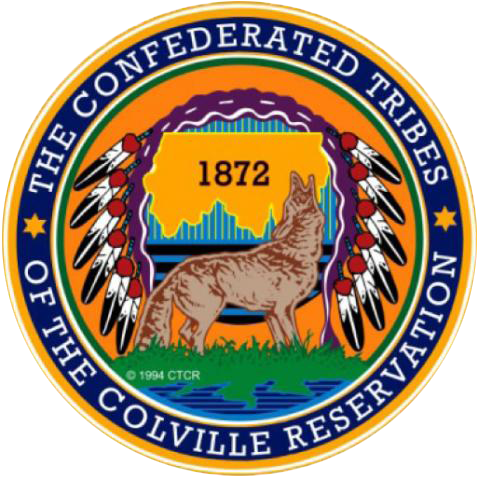Myths and Realities
Property Taxes
MYTH: The Confederated Tribes and individual Colville Tribal members never pay property taxes and all of their properties are held in trust for them by the federal government.
FACT: In a few instances, the Confederated Tribes and in many instances, individual Colville tribal members, pay property taxes in the respective counties where the property is located.
Only lands presently located within the boundaries of the Colville Indian Reservation, land which was located within the boundaries of the former reservation, commonly referred to as the "North Half" of the Colville Reservation, and lands known as allotments (parcels) that are owned or were owned by members in areas on and near the present Colville Indian Reservation qualify for the "trust" status.
Example: A Colville tribal member who owns property in west Coulee Dam, Grand Coulee or Electric City (or any area that is located outside the boundaries of the Colville Indian Reservation) will pay applicable property taxes even if the property is purchased from another Colville tribal member.
Other Taxes
MYTH: The Confederated Tribes and individual Colville tribal members never pay sales tax, federal income tax or other taxes.
FACT: The Confederated Tribes and individual Colville tribal members are not required by federal law to pay state taxes on goods and services purchased within the boundaries of the Colville Indian Reservation and/or delivered to them on the reservation. All Colville tribal members who earn income pay federal income taxes; the only exception is for Colville tribal members who earn income from their own trust allotments.
However, the Confederated Tribes pays applicable taxes in conjunction with operating businesses such as the Keller Ferry Marina and Seven Bays Marina, which are both located off of the reservation. Individual Colville tribal members who own "fee status" property pay applicable taxes and members who own and operate businesses located off of the reservation pay taxes. In addition, the Confederated Tribes and its members pay sales tax when purchasing goods and services that are not deliverable to the reservation.
Example: A Colville tribal member who chooses to shop in Spokane, Washington will pay Washington State sales tax plus an additional percentage or 8.1 sales tax total. Also, members pay taxes applied locally for lodging, food or whatever.
Per-Capita Payments
MYTH: The Confederated Tribes finances its periodic "per-capita" payments with monies received from the sources such as federal, state and local funds.
FACT: Per capita payments are funds strictly from the Tribes own resources and are primarily generated from the sale of timber and wood products.
Housing
MYTH: Adult Colville tribal members living on the reservation are all eligible for a free home such as a HUD home or some sort of free housing.
FACT: Some Colville tribal members in low income categories may own or rent HUD homes located on the reservation, however, housing for the elderly, individuals on fixed incomes and those classified as low income is terribly inadequate and constitutes a chronic need. Most tribal members have to take care of their own housing needs with minimal or no assistance from the Tribes.
Example: Some qualified tribal members can get home loans from Colville Tribal Credit, the Tribes’ loaning institution. Not everyone qualifies.
Free Money from the Tax Payers’ Pockets or “Welfare for All”
MYTH: Every enrolled Colville tribal member gets "a check in the mail" from the federal government every month simply because they are members of a federally recognized tribe; and this so called "welfare" payment is financed by taxing American citizens.
FACT: Not true. American Indians can apply for welfare just like everyone else.
This governmental operation provides a variety of services for Colville tribal members living on the reservation and elsewhere, and for the management of reservation natural resources.



